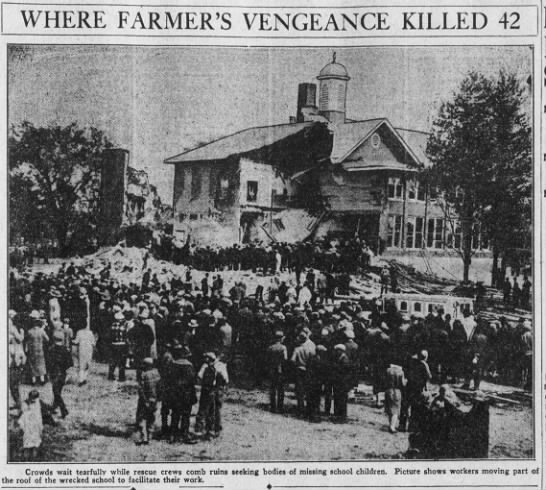We had not lived in Lansing, MI very long before people referred to the Bath school bombing. I had never heard of Bath, MI or the school bombing. But the history was legend in Lansing.
In 1927 a farmer blew up the new consolidated Bath school, with 250 children inside. At the same time, his own house and farm buildings blew up. He had murdered his wife and placed her body in one of the farm buildings. He drove to the school to see the carnage and when the Superintendent of Schools came to his car to talk, the farmer set off an explosion in his car, killing them both and killing and harming bystanders.
Forty-four funerals. Nearly the entire Fifth Grade class was dead. Lansing doctors said it was as bad as anything they saw in WWI.
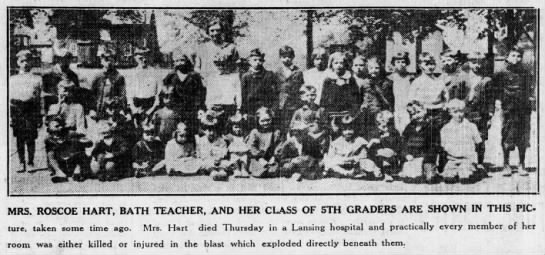
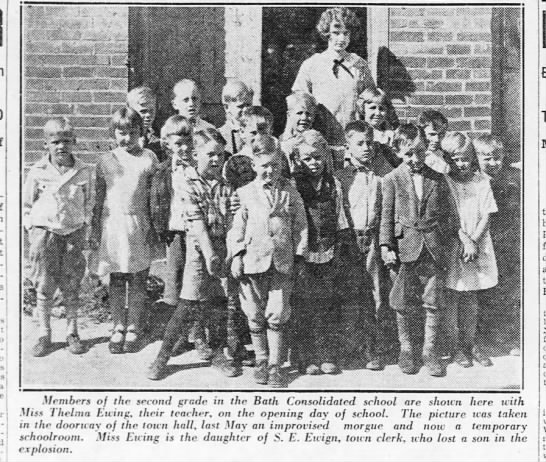
Andrew Kehoe's wife inherited a farm in Bath, MI. They moved in and Kehoe became a good neighbor, involved in the community. When crop values fell he was broke. He focused on the taxes for the newly built school as the cause of his ruin.
Kehoe had an "inventive genius" and exceptional mechanical skills. But a closed head injury may have caused a personality change. He killed his sister's cat. He was seen abusing animals by Bath neighbors and friends. But few suspected he was capable of such evil.
Kehoe collected his explosives. In plain sight, he entered the school where he set up a system of explosives. He remained unemotional and detached even knowing what he was going to do.
Schechter shares the stories of people who heard the explosion and raced to the scene. He narrates the desperate struggle to find the survivors and the awful sight of blasted bodies.
Lansing was fifteen miles away. Victims were taken to the hospitals there, and first responders from Lansing and surrounding communities flocked to help at Bath.
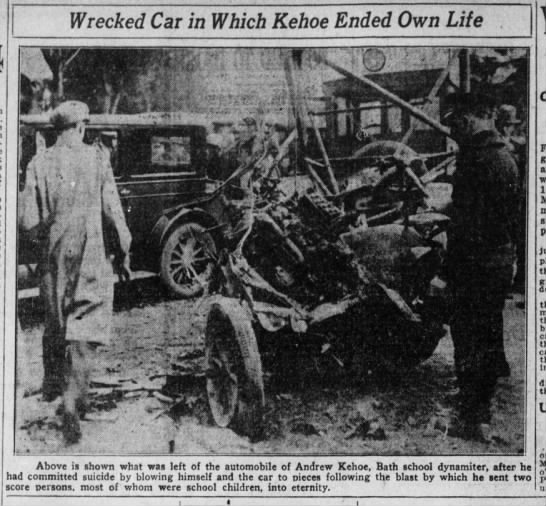
When Schecter first introduced Charles Lindbergh into the story I was confused. I learned that his historic flight dwarfed the story of the Bath School disaster. It faded into memory as new, lurid murder stories took over the headlines. We do have short attention spans.
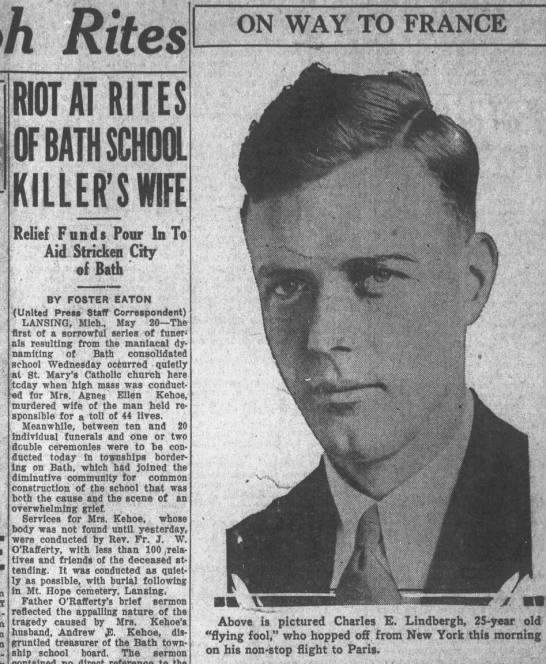
Schechter sets the crime in context of the history of mass murderers and serial killers. It was interesting to learn that Kehoe purchased the explosives legally; after WWI, new markets were needed and they were promoted for farm use. A post-war drop in crop profits impacted farmers.
Kehoe's horrific crime of terrorism shocked the rural community of Bath, Michigan, and still appalls today.
I received a free egalley from the publisher through NetGalley in exchange for a fair and unbiased review.
Photographs from Newspapers.com
Maniac: The Bath School Disaster and the Birth of the Modern Mass Killer
by Harold Schechter
Little A
March 9, 2021
ISBN: 9781542025324
hardover $24.95 (USD)
from the publisher
In 1927, while the majority of the township of Bath, Michigan, was celebrating a new primary school—one of the most modern in the Midwest—Andrew P. Kehoe had other plans. The local farmer and school board treasurer was educated, respected, and an accommodating neighbor and friend. But behind his ordinary demeanor was a narcissistic sadist seething with rage, resentment, and paranoia. On May 18 he detonated a set of rigged explosives with the sole purpose of destroying the school and everyone in it. Thirty-eight children and six adults were murdered that morning, culminating in the deadliest school massacre in US history.
Maniac is Harold Schechter’s gripping, definitive, exhaustively researched chronicle of a town forced to comprehend unprecedented carnage, and the triggering of a “human time bomb” whose act of apocalyptic violence would foreshadow the terrors of the current age.

